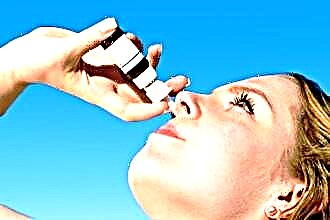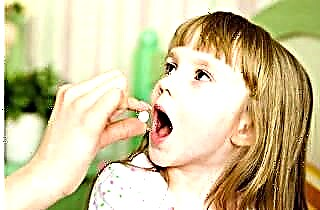 How to treat sinusitis? Sinusitis treatment is a difficult task that requires a special approach and complex therapy. For therapeutic purposes, several drugs with different mechanisms of action are prescribed.
How to treat sinusitis? Sinusitis treatment is a difficult task that requires a special approach and complex therapy. For therapeutic purposes, several drugs with different mechanisms of action are prescribed.
The development of inflammation is based on a violation of ventilation in the paranasal cavities and a disorder of the drainage function. Swelling of the nasal mucosa makes it difficult for air to pass into the sinuses, which is why opportunistic microorganisms of the flora begin to multiply rapidly. The toxins released by them provoke the appearance of clinical symptoms and increase the secretion of mucus.
Swelling of the tissues in the nasal passages makes it difficult to drain, causing mucus to build up in the sinuses. It becomes a good environment for microbial activity.
Predisposing factors
The development of sinusitis in adults predisposes:
- a chronic or incompletely cured rhinitis;
- chronic otitis media of infectious origin;
- anatomical features of the structure of the nasal passages, due to which the movement of air worsens;
- polyposis formations;
- deformation of the septum of congenital, traumatic genesis;
- predisposition to allergies;
- frequent colds accompanied by rhinorrhea;
- immunodeficiency due to severe somatic pathology.
Symptoms
With sinusitis in adults, the following clinical signs are observed:
- nasal congestion;
- thick discharge of a yellow-green hue, which indicates the presence of purulent masses;
- Difficulty nasal breathing;
- deterioration of smell, taste;
- nasalness;
- headache; soreness of the points located above the paranasal cavities;
- hyperthermia. During the period of remission, hyperthermia can remain at the level of 37.2 degrees. With an exacerbation, as well as in the acute phase of sinusitis, fever can reach 39 degrees.
Treatment directions
To cure sinusitis, it is necessary to use medications, physiotherapy procedures (after the end of the acute stage of inflammation), as well as breathing exercises and massage.
In this article, we will dwell on drug therapy in detail and find out what drugs are used to treat the disease.
Sinusitis treatment is aimed at:
- reduction of tissue edema;
- restoration of drainage from the paranasal cavities;
- normalization of ventilation in the sinuses;
- ensuring patency of the nasal passages;
- decrease in viscosity of secretions;
- fighting germs;
- relief of nasal breathing.
The combination of drugs and non-drug methods can eliminate infection, reduce inflammation and get rid of unpleasant symptoms.
Drug treatment of sinusitis includes several groups of drugs that perform a specific task. List of pills and nasal products used in the treatment of sinusitis:
- antibacterial agents of systemic action;
- antimicrobial drugs for intranasal administration;
- mucolytic;
- vasoconstrictor;
- antiviral (rarely prescribed, in addition to antiseptics);
- combined medications.
Homeopathic, anti-inflammatory, antihistamines for sinusitis can also be prescribed. Now about each group in more detail.
Systemic antibiotics
Effective remedies for sinusitis are antibacterial drugs. They are prescribed in almost all cases of sinusitis, because infectious microorganisms are the cause of the development of the disease. Zinnat is considered an effective antibiotic.
The main active ingredient is cefuroxime. It is produced in the form of tablets or granules, which after dilution take the form of a suspension. Many bacteria are sensitive to the drug, so it is often prescribed for sinusitis.
 Contraindications include hypersensitivity to cephalosporin, penicillin antibiotics, and carbapenems. An antibacterial agent for sinusitis should not be taken by a child under three months.
Contraindications include hypersensitivity to cephalosporin, penicillin antibiotics, and carbapenems. An antibacterial agent for sinusitis should not be taken by a child under three months.
The duration of the therapeutic course is 7-10 days. The drug should be taken with meals. The dosage varies from 125 mg to 500 mg twice a day (depending on the severity of the disease, the patient's age, the presence of concomitant diseases).
Possible side effects include:
- activation of fungal flora;
- increased eosinophils in the bloodstream;
- skin rashes, as a sign of allergies;
- headache;
- dizziness;
- dyspeptic disorders in the form of nausea, diarrhea, pain in the abdomen.
Topical antimicrobial agents
In addition to systemic antibiotics, it is necessary to use effective topical sinusitis medications. Combined sanitation of the infectious focus allows you to eliminate the cause of the disease and accelerate recovery.
How to treat sinusitis in adults?
- Dioxidine - available in the form of a solution with an active substance concentration of 1%. The drug is sold in ampoules. The action of the solution is aimed at fighting microbes. Contraindications include pregnancy, lactation period;
- Miramistin - has a wide spectrum of antiseptic action. It has a detrimental effect on fungal, viral, bacterial pathogens. Restrictions on use apply to people with a tendency to allergic reactions. Pregnancy, lactation period are not contraindications;
- Furacilin - available in tablet form. To dilute one tablet, warm water with a volume of 100 ml is required;
- Chlorophyllipt - belongs to the group of herbal medicines. Eucalyptus has anti-inflammatory, antiseptic, anti-edema effect. It can be used in the form of an oily solution to instill the nasal passages two drops up to four times a day. You can also use a rinse or patch medication. To do this, it is enough to moisten cotton swabs in a medicinal solution and insert into the nostrils for 10 minutes.
In addition, for treatment, you can use ready-made preparations for sinusitis in the form of a spray. These funds include Bioparox, Isofra. They contain an antibacterial agent that is necessary to fight microbes.
Mucolytics
Mucolytic medicine for sinusitis must be present in the treatment regimen for the disease. Its main action is aimed at reducing tissue swelling, sputum viscosity, facilitating its excretion from the paranasal cavities, as well as facilitating nasal breathing. One of the commonly prescribed drugs is Rinofluimucil.
The drug contains a mucolytic and vasoconstrictor component, which complement the therapeutic effect of each other. Mucolytic effect is due to increased mucus secretion, as a result of which sputum liquefies and is easier to remove from the sinuses.
Contraindications and doses
Rinofluimucil is contraindicated for up to two years, as well as for:
- pheochromocytoma;
- hypersensitivity;
- severe arterial hypertension;
- glaucoma;
- concomitant use of antidepressants.
Caution in treatment should be observed for people with diabetes mellitus, atherosclerotic vascular lesions, thyrotoxicosis, and asthma.
Mucolytic medicine for sinusitis is prescribed two sprays up to four times a day. The child is assigned one spray three times.The duration of the course is 7 days.
Adverse Reactions
 Side reactions include:
Side reactions include:
- allergy, which is expressed by bronchospasm, skin rashes, tissue edema, increased congestion;
- anxiety;
- hallucinations;
- irritability;
- headache;
- insomnia;
- tremor;
- cardiopalmus;
- dryness in the nasopharynx;
- increased nasal congestion;
- hives;
- urinary retention.
If the recommended doses are exceeded, a decrease in the therapeutic effect and the development of tachyphylaxis (addiction) are possible.
Vasoconstrictor drugs
What medications are used to quickly relieve nasal breathing? The task of drugs in this group is to reduce tissue edema and restore the outflow of mucus from the paranasal sinuses.
Effective remedies include:
- Nazol;
- Nazivin;
- Knoxprey;
- Sanorin;
- Galazolin;
- Rinosprey;
- Pharmazoline;
- Rhinorus;
- Snoop;
- Xylo Mefa.
The dosage depends on the composition of the vasoconstrictor. Usually two drops are prescribed 2-4 times a day.
Drugs in this group are not prescribed for:
- pheochromocytoma;
- individual intolerance;
- thyrotoxicosis;
- uncontrolled arterial hypertension;
- taking antidepressants;
- glaucoma;
- failures of the cardiac rhythm;
- severe atherosclerotic vascular disease;
- prostate adenoma;
- epilepsy.
Side effects include increased blood pressure, tachycardia, cardiac arrhythmias, insomnia, nausea, irritability, and allergies.
Combined funds
The most effective medicine is Polydexa. Its combined composition is represented by two antibiotics (neomycin, polymyxin), hormonal (dexamethasone), vasoconstrictor (phenylephrine) component.
The action of the drug is aimed at:
- fighting infection;
- reduction of mucosal edema;
- reducing the severity of inflammation;
- restoration of patency of the nasal passages and drainage from the paranasal sinuses.
 Contraindications include:
Contraindications include:
- age up to 15 years;
- individual intolerance to the components;
- recent stroke;
- uncontrolled hypertension;
- glaucoma;
- an increase in the size of the prostate;
- active viral process;
- epilepsy;
- taking antidepressants.
The solution is used one spray at a time up to five times a day. The duration of the course is 5 days.
Possible adverse reactions include:
- allergy, which is manifested by increased edema, an increase in the volume of mucous secretions, lacrimation, skin rashes;
- cardiopalmus;
- nausea, vomiting;
- dry mouth;
- headache;
- convulsions;
- irritability;
- hallucinations;
- insomnia;
- increased blood pressure;
- urinary retention.
Traditional methods
For the treatment of sinusitis in adults, not only medications can be used, but alternative medicines. Treatment of the disease can be carried out:
- saline solution. For cooking, you need 3 g of salt, warm water with a volume of 210 ml. After thoroughly dissolving the salt, you can start rinsing the nasal passages. To enhance the therapeutic effect, you can add a couple of drops of iodine (in the absence of allergy to iodine-containing preparations). In addition, saline can be used to cleanse the nasal passages before instilling a hormonal, antimicrobial drug;
- aloe. To enhance the medicinal properties of the plant, it is necessary to leave the cut leaf in a dark cloth in the refrigerator for 12 hours. After that, you should grind the aloe, squeeze the juice;
Usually, aloe juice is diluted with warm water (1: 1), but sometimes concentrated juice is allowed. To enhance the effect, you can dilute it with an antiseptic, for example, Dioxidin, Furacilin.
- herbal infusions, decoctions of chamomile, calendula, oak bark, eucalyptus. They are used to flush the nasal passages. For cooking, it is enough to pour 15 g of grass with boiling water with a volume of 240 ml, cover with a lid, and wait 20 minutes. As soon as the infusion cools down a little, you can start the procedure;
- thuja oil. Medicines are made from plants that are at least 15 years old, since they contain a large amount of biological substances. Thuja possesses powerful antiseptic, immunomodulatory, decongestant, regenerating properties. Treatment can be carried out using thuja-based drops or rinsing solutions. The duration of the therapeutic course is 6 weeks. First, you need to drip two drops of saline solution, then thuja oil (two drops). After that, you can slightly massage the wings of the nose to evenly distribute the solution over the surface of the mucous membrane and accelerate the absorption of the drug. The procedure is repeated three times a day. You can also use a different scheme. Every day you need to bury the nasal passages with undiluted thuja oil, starting with one drop on the first day and reaching 8 drops (on the eighth day). From the ninth to the 16th day, we reduce the dose of oil by one drop. The full course of therapy is 16 days. After a week break, the course should be repeated;
- cyclamen juice. The plant has a pronounced mucolytic effect, which makes it possible to cure sinusitis in 1-2 months. Note that cyclamen is a poisonous plant, so it is important to observe the dosage.
In the treatment of sinusitis, an important component is to increase the level of immune defense.
To do this, it is recommended to take vitamins, drink a decoction of ginger, normalize food, sleep and spend enough time in the fresh air.



